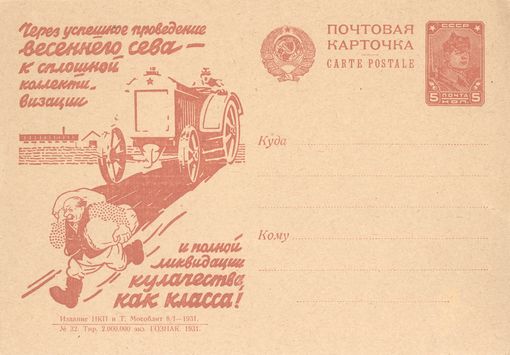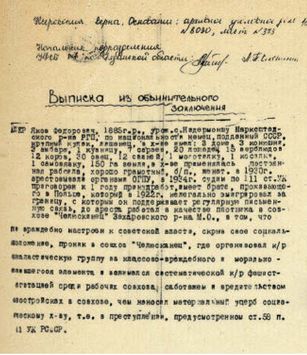Yakov Fridrikhovich Mayer (1885–1943)


Yakov Mayer was born to a peasants’ family in the Volga Region in 1885. In the Soviet Union, not only relatively prosperous peasants but nearly all independent farmers were referred to as “kulaks”. Drastic sanctions were imposed on those who resisted collectivization. In 1929, Yakov Mayer also fell victim to the so-called dekulakization campaign. He was disenfranchised and his entire property – farmstead, land, cattle and farm equipment – was confiscated. In 1930 he was banished from his village, and in 1934 sentenced to ten years in camp for alleged espionage and counter-revolutionary activities. In 1943, two years before the end of his prison term, Yakov Mayer died in the Gulag. No photos of him have come down to us.


